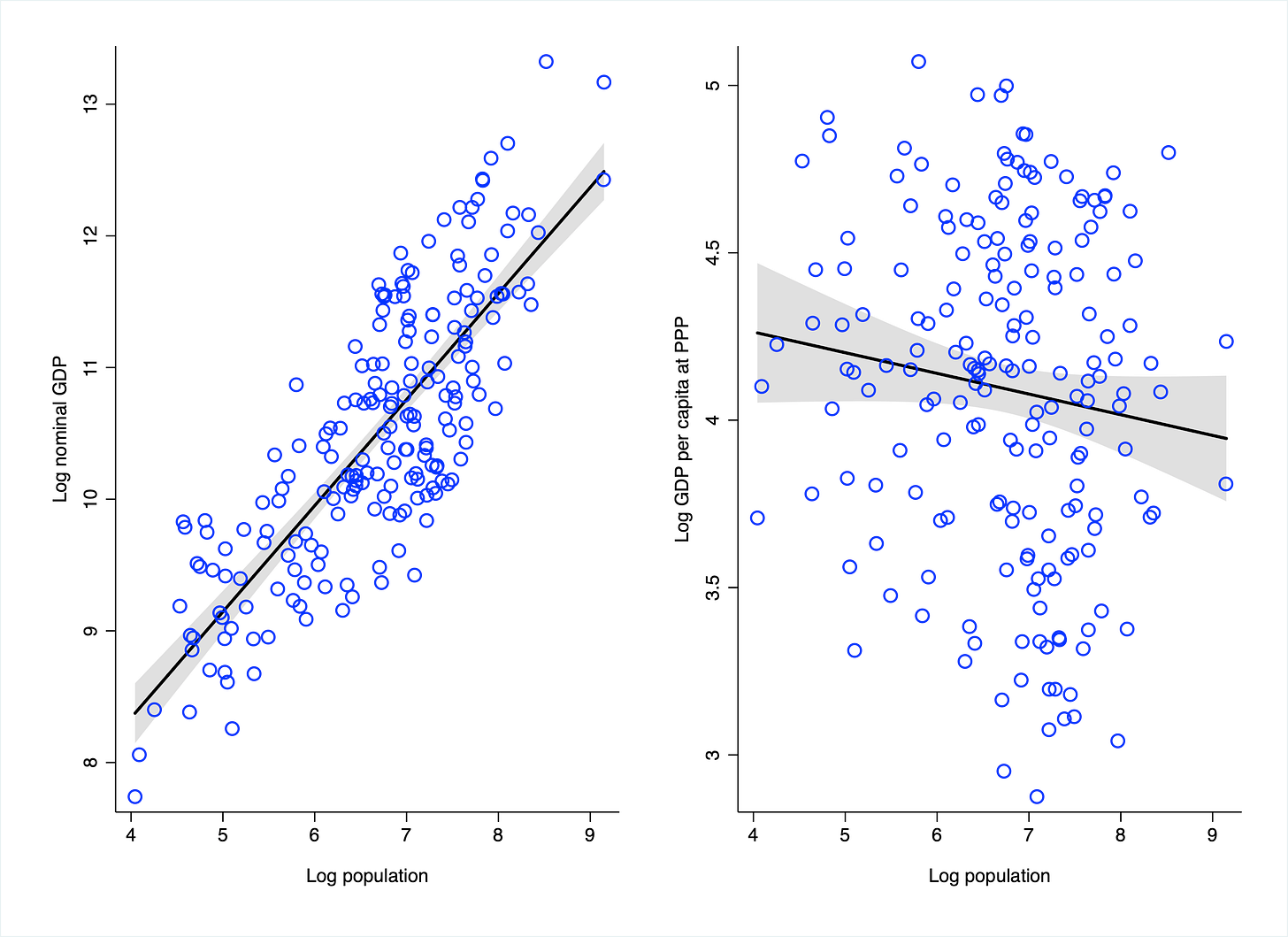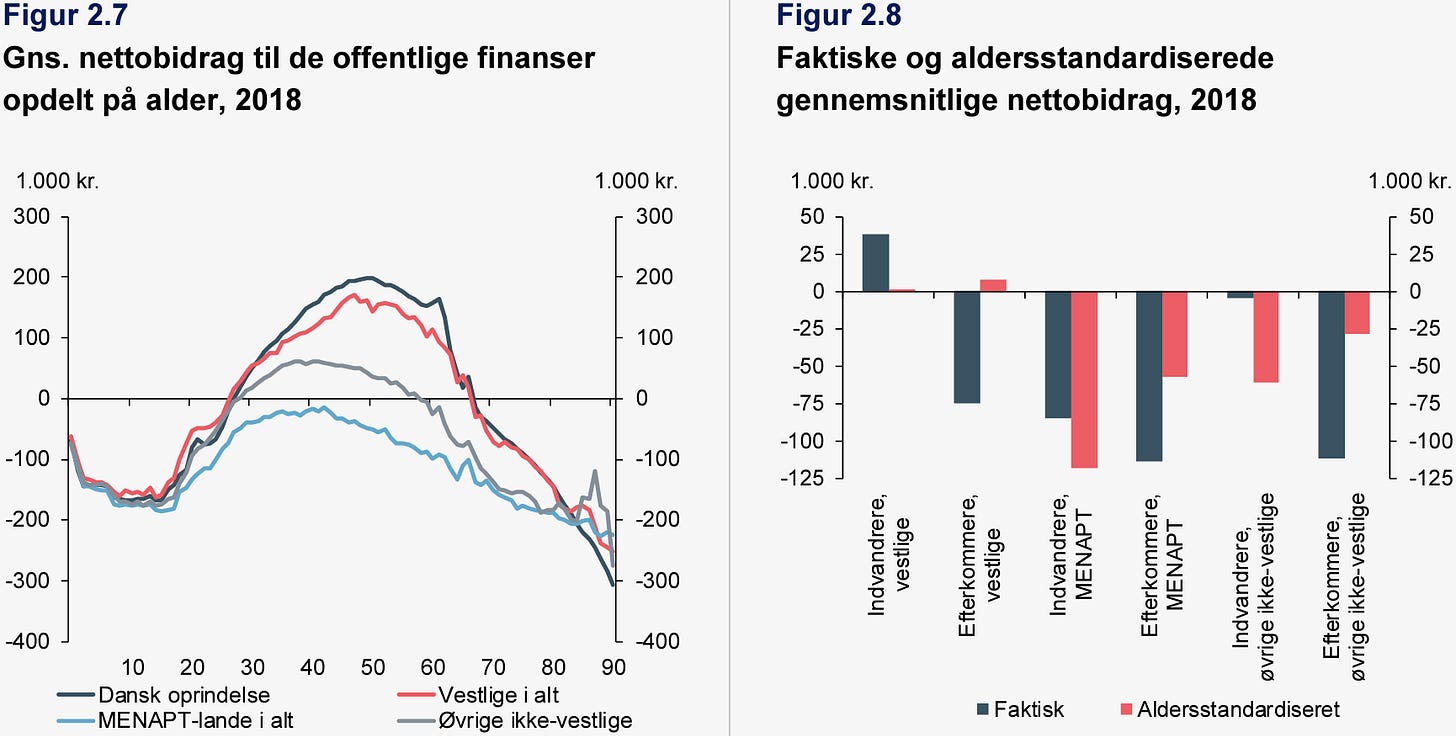Written by Noah Carl.
Centrist-liberal commentators are fond of telling us, often in a distinctly exasperated tone, that “immigration is good for the economy”.
If you haven’t come across such a pronouncement recently, here are 16 examples taken from articles in the Times, Guardian, Telegraph, Economist, New York Times, Washington Post, Atlantic, Huff Post, Vox, Reason and Politico:
What should we make of this claim? Is it true or is it false? I would say it’s neither; I’d put it in the category of “not even wrong”.
Immigration simply means the movement of people into a country of which they are not citizens or residents. It comprises everything from highly skilled Indian tech-workers settling in the Bay Area to penniless Sudanese refugees fleeing across the border to Ethiopia. Are both these kinds of immigration good for the economy? I’m not so sure.
Immigration is literally just adding people to a country, thereby increasing the total population (assuming there’s not much emigration). Is having a larger population good for the economy? We can test this quite easily, using GDP and population data from the World Bank.
The figure below displays two charts. On the left, population is plotted against nominal GDP; on the right, it’s plotted against GDP per capita at PPP. (All variables are logged due to their highly skewed distributions.) Nominal GDP is just the overall size of the economy, without making adjustments for the cost of living. GDP per capita at PPP, by contrast, measures a country’s standard of living.
What do these charts tell us? Well, there’s a very strong relationship between population and GDP: countries with larger populations tend to produce more goods and services – which isn’t particularly surprising. On the other hand, there’s a weak negative relationship between population and GDP per capita: countries with larger populations tend to have slightly lower living standards (though the slope isn’t significantly different from zero).
So having a larger population is good for the total size of the economy, but it’s bad (or irrelevant) for the standard of living.
When people with advanced degrees assure us that “immigration is good for the economy” they’re surely talking about living standards? Otherwise, the assertion is almost trivial: as long as someone does one hour of work per year, and doesn’t stop anyone else from working, he has added to GDP.
But nobody really cares about the total size of the economy; what they care about is living standards. You’d much rather live in Denmark than in India, even though India’s GDP is almost ten times higher. The question then becomes: is immigration good for a country’s standard of living?
Well, it depends. And not just a little bit – it depends a lot. The effect of immigration on a country’s standard of living ranges from “substantially positive” to “substantially negative”. And as with police shootings and racial SES gaps, you don’t really need sophisticated studies to figure that out.
Does everyone contribute equally to the economy? No. Can someone’s contribution to the economy be predicted based on factors like education and country of origin? Yes. Hence some types of immigration will be good for the economy, and some types will be bad.
Immigrants aren’t a magical category of human that, simply in virtue of moving to another country, are destined to make that country richer. They may be more productive than the people who are already there, or they may be less productive. If they’re less productive, they’ll be bad for the economy.
This is obvious when you think about it. But to drive the point home, here’s a thought experiment. Suppose half the people in France moved to Britain, and half the people in Britain moved to France. Wow, 50% immigration! Will that make France and Britain richer? Obviously not. If anything, it will make them poorer, as it takes time for people to adjust to a new society.
Still not convinced? Here’s a figure from a report published by the Danish Ministry of Finance. (Emil Kirkegaard covered the report last year.) It shows net contributions to the public finances – a decent measure of “being good for the economy” – for different categories of people. The left-hand chart shows net contributions across the lifespan; the right-hand chart average and age-adjusted net contributions.
Looking at the left-hand chart, the light blue line labelled “MENAPT-lande i alt” corresponds to immigrants from the Middle-East, North Africa, Pakistan and Turkey. As you can see, it falls below the zero line at every single age, meaning that even in the middle of their working lives, such immigrants are a net negative for the public finances. (They take more in benefits and public services than they pay in taxes.)
Turning to the right-hand chart, the bars labelled “Indvandere, MENAPT” correspond to the same group of immigrants. Dark blue is the average net contribution; pink is the age-adjusted net contribution. Both values are substantially negative.
The bars labelled “Efterkommere, MENAPT” correspond to the same group of immigrants’ descendants. Again, both values are substantially negative, so even in the second generation, people from the relevant countries are a net negative for the public finances. While there might be humanitarian arguments for accepting them, they’re certainly not good for the economy.
Since not everyone contributes equally, some people must contribute more and others must contribute less. It can’t be any other way. Overall, “immigration” is neither good nor bad for the economy. It depends entirely on the characteristics of the immigrants.
Saying “immigration is good for the economy” is like saying “white granules are good for your coffee”. If the white granules happen to be sugar, the statement might well be true, but if the white granules happen to be salt, I think you’ll agree it’s false.
Why, then, do smart people incessantly repeat this mantra?
Some do so because they wish to signal their tribal affiliation. Insisting that “immigration is good for the economy” is a way of conveying that you’re part of the centrist-liberal tribe – that you have progressive, cosmopolitan values and you definitely don’t like that awful Nigel Farage!
In other cases, though, it’s due to flawed reasoning. People see a study that finds, say, an overrepresentation of immigrants among the founders of Fortune 500 companies. And they conclude that immigrants in general must be more likely to found such companies. Hint: just because high-skilled immigrants in America found a lot of companies, doesn’t mean low-skilled immigrants in Europe do. (In fact, they don’t.)
There are various arguments in favour of immigration, which may or may not have merit. The claim that “immigration is good for the economy” is so vague as to be meaningless.
This article was originally published behind a paywall on Noah’s Newsletter.
Noah Carl is an Editor at Aporia Magazine.
Support Aporia with a $6 monthly subscription and follow us on Twitter.






Excellent article. It drives me crazy when people make sweeping claims about the effects of immigration and totally ignore that immigrants have widely differing characteristics, including culture, skills, age, marital status, education, etc.
It should not be controversial to say there are differences between immigrants and some have more positive and negative effects than others. Nor that nations have the right to choose between them.
The cultural/academic/managerial elite at the apex of WEIRD societies (Western Educated Industrial Rich Democratic) have already made history by being the first group ever recorded as having an Out Group bias (alert National Geographic!), and our WEIRD societies also may be the first where to be a member of the ruling class you have to be afflicted with a raging case of xenophilia.
I can only guess that we live in such incredibly rich and safe countries with such stable economic and legal foundations that we are all just too fat and happy to care that our elite are trying to see other people(s) behind our backs, but also our propaganda comes in so many rich flavors and colors that we all swallow the current wisdom—questioning immigration equals xenophobia and xenophobia is a hate crime only Nazis commit—happily without thinking.
I do wonder about all those obedient Narrative Enforcement Agents of the MSM, especially now that the layoffs are flying fast and furious: do they ever wonder or worry that a Diverse Immigrant could take their job or their kids' place in school? Or do they rest their heads on the pillow every night assured that the Diverse future would never come for anyone as wise and virtuous as they are?
My feeling is that we're being led by a tamer version of one of those medieval castration cults, where you offer your genitals (meaning future, progeny, patrimony) to god as a mark of the highest virtue. If these soldiers of God get their way (their god being "the Right Side of History™"), there will be no Western future that recognizes or prioritizes any Western peoples, culture, history or tradition.